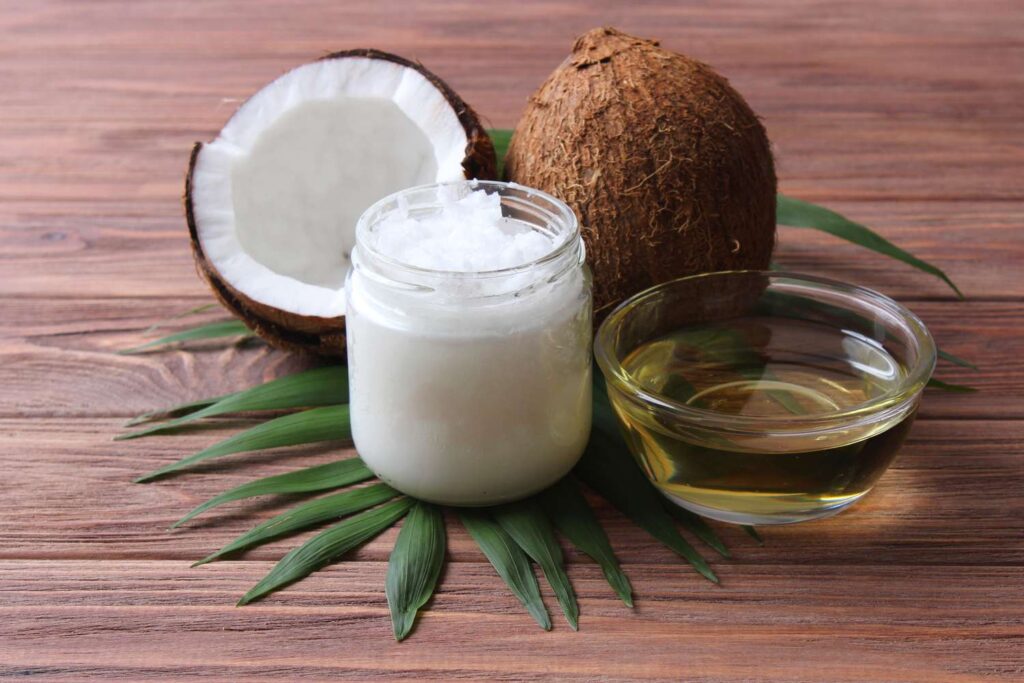In the quest for natural and effective skincare solutions, coconut oil emerges as a standout hero. Celebrated for its myriad of health benefits, coconut oil holds a special place when it comes to skin care. Derived from the fruit of the coconut palm, coconut oil is not only a staple in kitchens around the globe but also a revered ingredient in beauty circles for its hydrating, protective, and rejuvenating properties.
we explore the “benefits of coconut oil for skin,” backed by scientific insights and practical advice. From its role in moisturizing and healing to its antioxidant power, we’ll cover everything you need to know to harness the full potential of coconut oil in your skin care regimen. Join us as we dive deep into the world of coconut oil, showcasing how this age-old remedy can bring about radiant, healthy skin.
What is Coconut Oil?

Origin and Processing
Coconut oil is extracted from the meat or kernel of mature coconuts harvested from the coconut palm (Cocos nucifera). It undergoes various processing methods, including cold pressing and refining, which influence its final composition and benefits. The most beneficial type for skin health is virgin coconut oil, obtained through cold-pressing the coconut meat without using high temperatures or chemicals. This process retains the oil’s natural antioxidants and medium-chain fatty acids (MCFAs), making it a powerhouse of nutrients.
Types of Coconut Oil
- Virgin Coconut Oil: Unrefined, cold-pressed oil, ideal for skin care due to its high content of antioxidants and MCFAs.
- Refined Coconut Oil: Processed to remove impurities and flavor, suitable for cooking but less beneficial for skin.
- Fractionated Coconut Oil: A form of coconut oil that has had its long-chain fatty acids removed, making it liquid at room temperature and a popular choice for topical applications due to its light texture.
The Scientific Foundation of Coconut Oil’s Impact on Skin Health

1.Composition of Coconut Oil
Coconut oil is rich in saturated fats, predominantly composed of medium-chain fatty acids (MCFAs) like lauric acid, caprylic acid, and capric acid. These MCFAs possess unique properties that are beneficial for the skin, such as antimicrobial and anti-inflammatory effects. Lauric acid, in particular, is known for its ability to combat bacteria and viruses, making coconut oil a natural treatment for acne and skin infections.
2.How Coconut Oil Benefits the Skin
The structure of MCFAs in coconut oil allows it to penetrate the skin easily, providing deep moisturization and strengthening the skin’s barrier function. This helps to lock in moisture, keeping the skin hydrated and supple. Additionally, the antioxidant properties of coconut oil protect the skin from oxidative damage caused by free radicals, which can lead to premature aging.
This introduction and the initial sections set the stage for a detailed exploration of the benefits of coconut oil for the skin, addressing the focus keyword effectively. To complete the article
If you have any queries related to medical health, consult Subhash Goyal or his team members on this given no +91 99150 72372, +91 99150 99575, +9182830600





